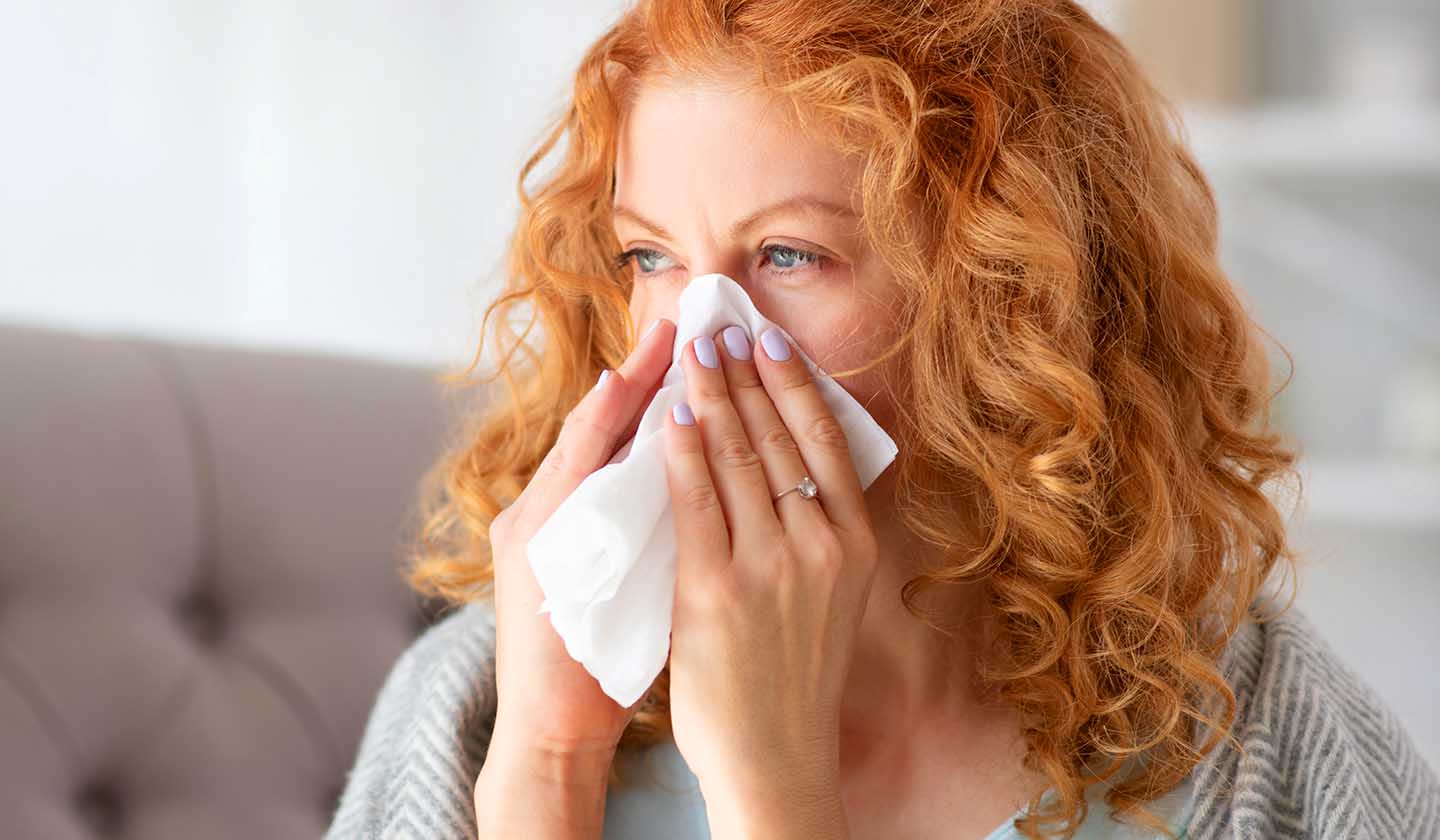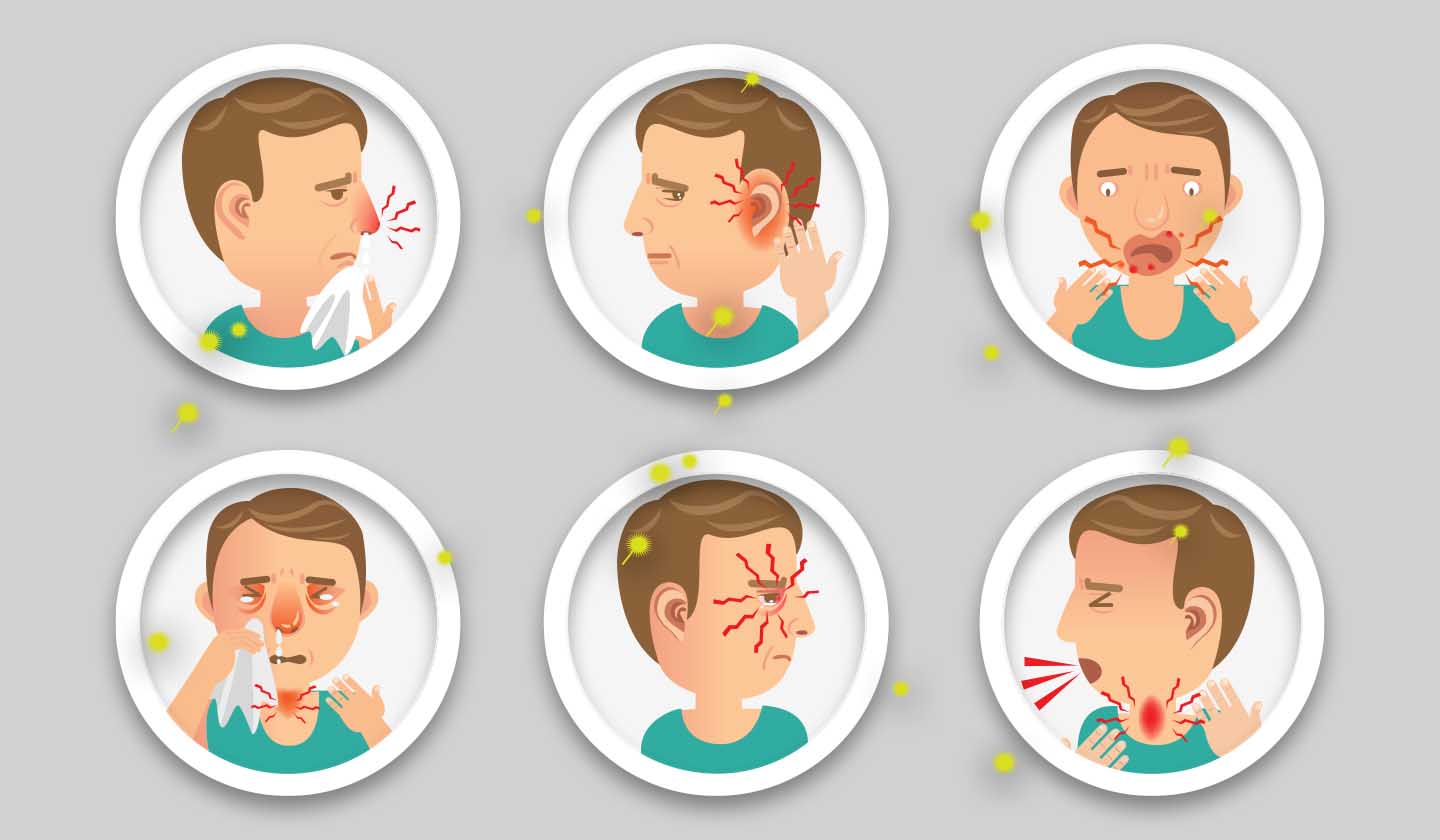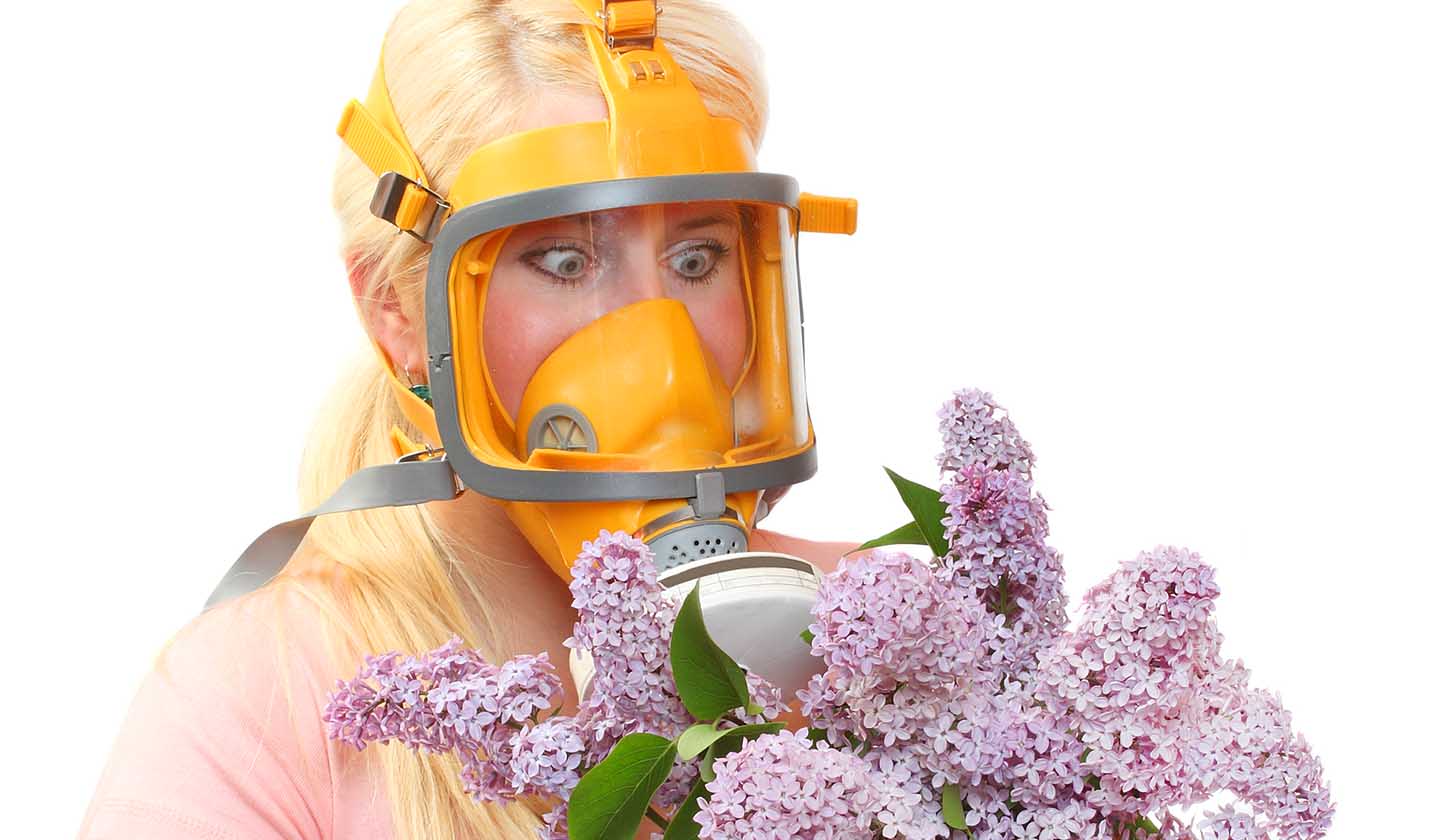Respiratory system
Allergic rhinitis - And this damned allergy that won't let me go

Allergic rhinitis is a chronic respiratory disease of the nasal mucosa characterized by inflammation caused by allergens.
It is the most prevalent pathology of allergic diseases and the number of patients has been increasing, being now a public health problem in industrialized countries. The incidence of this pathology is higher in urban areas than in rural areas, which clearly shows the contribution of air pollution to the onset of the disease.
In Portugal, the prevalence of allergic rhinitis is estimated to be between 22 and 26% in the general population, with adolescents being the most affected group.
Rhinitis can contribute to sleep disturbance, tiredness, headaches, irritability and changes in cognitive performance, consequences that have a major impact on the patient's quality of life.

What are the symptoms?
- Watery rhinorrhoea;
- Sneezing crises;
- Itching in the nose, throat, ears, and roof of the mouth;
- Nasal congestion (stuffy nose);
- Itchy eyes, watery eyes, and red eye.

How to diagnose it?
Allergic rhinitis should be diagnosed by a specialist doctor (immunoallergologist, otolaryngologist) with skin tests (to identify allergens) and, if necessary, examinations of the nose, throat, ears, lungs, and medical tests. If you have any of the symptoms described above talk to your doctor.

What are the most common allergens?
- Mites (from house dust)
- Pollens (which are more concentrated in the air during spring)
- Animal hair
- Fungi

Classification of allergic rhinitis
Regarding exposure to allergens:
- Perennial - when there is continued exposure to allergens (mites, pets)
- Seasonal - when the exposure is periodic (pollens, fungi)
Regarding the duration of symptoms:
- Intermittent (<4 days a week or <4 weeks in a row)
- Persistent (> 4 days a week or> 4 weeks in a row)
Regarding the severity of symptoms:
- Mild (no major problems for the patient)
- Moderate to severe (may lead to asthma, sinusitis, and ear infections)

What kind of treatments is available?
Treatment should be adapted to the severity of the symptoms and you should see your doctor or pharmacist.
Some medicinal products provide immediate relief of symptoms and others, when extensively used, prevent allergic attacks.
In case of non-prescription pharmacological treatment, there are oral antihistamines (cetirizine fexofenadine, loratadine), topical nasal antihistamines (azelastine, dimethindene) and oral decongestants (pseudoephedrine associated with acetaminophen acid or acetylsalicylic acid), topical, nasal decongestants (oxymetazoline, xylometazoline, phenylephrine) and nasal corticosteroids (fluticasone, triamcinolone acetonide).
Also, in terms of prevention, there are specific vaccines that aim to reduce the body's sensitivity to allergen (immunotherapy).

It is always better to prevent...
- Keep a good nose hygiene and try to use physiological saline or seawater;
- Avoid exposure to allergens that trigger the allergy:
- If you are allergic to dust mites, air your house well, keep it free of dust and vacuum the house regularly, avoid carpets and rugs, wash bed linens at 60 ºC minimum, vacuum your mattress frequently;
- If you are allergic to animal hair, avoid direct contact with animals;
- If you are allergic to pollens, avoid outdoor activities especially when your local allergy forecasts indicate high levels of pollen in the air.
You should know that when rhinitis is not properly treated, other associated pathologies may appear, such as sinusitis (inflammation of the tissue lining the sinuses) and especially asthma, as rhinitis is an important risk factor for this respiratory disease.
Thus, controlling allergic rhinitis helps prevent more serious illnesses.
Sources
iSaúde
Farmácia Distribuição Magazine
Também lhe poderá interessar
Respiratory system
Asthma - Breathtaking
Respiratory system






